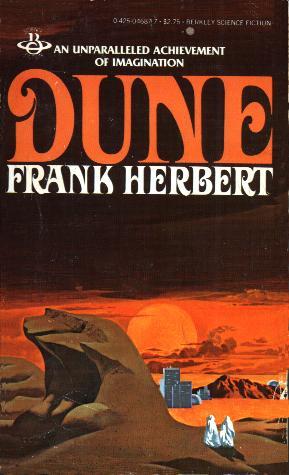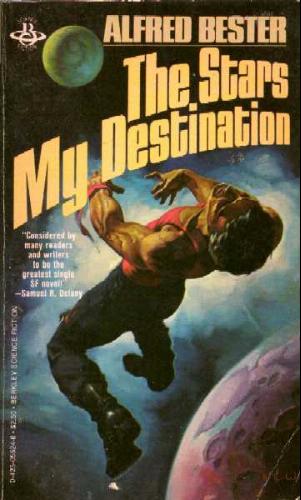Narratives from the Multi-verse
I read Dune by Frank Herbert. Dune is a complex piece of literary work dealing with a time period in the not so distant future. The story explores a lot of fascinating themes like religion and power and the need humans have to control their environment. I thought it was an intriguing notion that “Dune” addressed religion in a way that it was such a prominent feature within the novel. Thinking about it more, I realize how little other things within the sci-fi genre touch on religion. Looking more into it I realized that Herbert actually held a different outlook on religion as an institution, as opposed to his contemporaries. Hebert’s outlook on the future and religion’s place within it has religion and politics heavily intertwined, much like our time right now in my opinion, whereas other science fiction writers wrote of religion being an outdated institution that would lose all functionality when the future approached. I think in part that’s why he’s such a critically acclaimed author because he wasn’t afraid to point out that religion wasn’t just a faint or new idea and that years in the future it could very well still be a crucial player in our day to day affairs. I also think it’s brilliant how his story seems to be making observations about life in his day even though it’s told through the efforts of a futuristic story. For instance the idea of the Fremen being controlled by religion seems to be a good way of highlighting the way cults work and how charismatic religious leaders can sometimes exploit the religious for their own ends. Herbert’s outlook on religion, as implied by Dune, is that when mixed with power and greed it could be the most detrimental thing to a person’s way of life, in which I agree.
Another interesting concept that Herbert addresses within “Dune” is the idea of humanity having power over the environment. Within the novel an ecologist by the name of Kynes is determined to altar the harsh desert climate of Arrakis into a more lush tropical one, a dream that Paul is more than happy to continue with after Kyne’s death. No one seems to question whether it is right to completely altar the eco-system and typical planetary conditions, that have kept numerous animals alive on the planet. This brings to mind the way we, as a whole, treat the planet we live on today. Herbert seems to be trying to point out that the way we are treating our planet will only hurt us in the future. Although the repercussions are blind to us presently, though we are slowly starting to become more aware, we mustn’t take it upon ourselves to completely altar the ecological makeup of our environment because we will surely pay for them later. It’s themes like these that I think propelled Herbert’s book far above it’s time and is why it has gained the reputation as one of the greatest sci-fi writers. He addressed ideologies that I don’t think a lot of science fiction writers were thinking about at the time.
Another interesting concept that Herbert addresses within “Dune” is the idea of humanity having power over the environment. Within the novel an ecologist by the name of Kynes is determined to altar the harsh desert climate of Arrakis into a more lush tropical one, a dream that Paul is more than happy to continue with after Kyne’s death. No one seems to question whether it is right to completely altar the eco-system and typical planetary conditions, that have kept numerous animals alive on the planet. This brings to mind the way we, as a whole, treat the planet we live on today. Herbert seems to be trying to point out that the way we are treating our planet will only hurt us in the future. Although the repercussions are blind to us presently, though we are slowly starting to become more aware, we mustn’t take it upon ourselves to completely altar the ecological makeup of our environment because we will surely pay for them later. It’s themes like these that I think propelled Herbert’s book far above it’s time and is why it has gained the reputation as one of the greatest sci-fi writers. He addressed ideologies that I don’t think a lot of science fiction writers were thinking about at the time.
I also really enjoyed the movie, which we watched in class. I have seen the movie before many many years ago with my grandpa and it was really nice to see the movie again and to read the book and be reminded of the times that it was just me and my grandpa with milk and cookies, sitting on the couch watching Dune.


